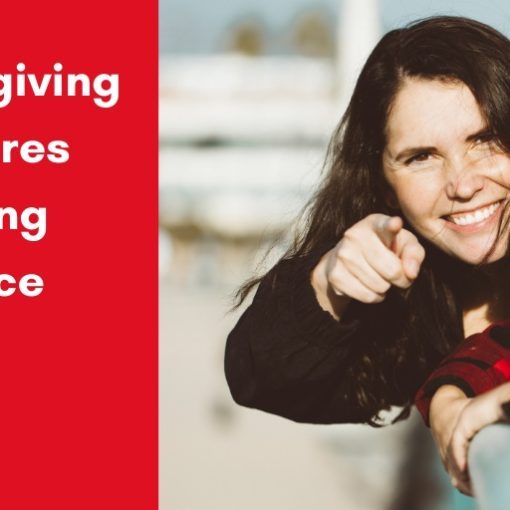Harsh words and rough hands can abuse but are we meant to turn the other cheek and accept the abuse. No, we are to grow in dignity.
She had given into the bully 365 times too many. She had been cheek-slapped all of the marriage.
For him, he had accepted the insults and put-downs as if he deserved them. Tongue lashings kept him eating dust. The dust he and the abuser were both made from. Ghosts of bullies’ past haunted them.
I gotta stand up and take a step
You and I have been asleep for hours
I gotta stand up
For your love
Bono
Others, who had also tasted dirt, rose from the dust and stood alongside the quivering heart, and with a newly discovered dignity, they no longer felt like a worm.
They were now warriors of love. A violently disturbing non-violent love.
Turn the other cheek.
It’s one of those verses in the Bible that has been twisted into something it was never intended to be. But unfortunately, it’s got so ingrained in our thinking and subconscious that it takes a high degree of retraining the brain to pull us out of its evil grip.
“You have heard that it was said, ‘An eye for an eye and a tooth for a tooth.’ But I say to you, Do not resist an evildoer. But if anyone strikes you on the right cheek, turn the other also; Matthew 5:38, 39
We so easily hear that we are to let a bully have their way. To be a doormat, to even give the bully a new target to hit with another cheek.
How much abuse has been allowed to continue because we have been taught not to question those with power?
To ‘Turn the other cheek’ was never a command to keep taking abuse.
Walter Wink explains this passage so well.
The backhand was not a blow to injure but to insult, humiliate, degrade.
It was not administered to an equal but to an inferior.
Masters backhanded slaves; husbands, wives; parents, children; Romans, Jews.
The whole point of the blow was to force someone who was out of line back into place.
Notice Jesus’ audience: “If anyone strikes you.” These are people used to being thus degraded.
He is saying to them, “Re-fuse to accept this kind of treatment anymore. If they backhand you, turn the other cheek.”
(Now, you need to physically enact this to see the problem.)
By turning the cheek, the servant makes it impossible for the master to use the backhand again: his nose is in the way. And anyway, it’s like telling a joke twice; if it didn’t work the first time, it simply won’t work.
The left cheek now offers a perfect target for a blow with the right fist; but only equals fought with fists, as we know from Jewish sources, and the last thing the master wishes to do is to establish this underling’s equality.
This act of defiance renders the master incapable of asserting his dominance in this relationship. He can have the slave beaten, but he can no longer cow him.
By turning the cheek, then, the “inferior” says: “I’m a human being, just like you. I refuse to be humiliated any longer because I am your equal. I am a child of God, and I won’t take it anymore.”
The Powers that Be: Theology for a New Millennium, Walter Wink.
How do we grow a new cheek?
Turning the other cheek, expressing a sense of dignity that shakes the world, grows slowly and deeply. It has to as it needs resilience that will withstand any storm. Good things take time.
Here is what I have found to be helpful.
1. Learn to note the space between stimulus and response.
‘Between stimulus and response, there is a space. In that space is our power to choose our response. In our response lies our growth and our freedom. Viktor E. Frankl (Holocaust Survivor)
When abuse occurs, we have a brief but precise moment where we can choose how we respond to that event.

I like to imagine a brain cell and how there is a gap, a moment of choice, where we can take a new path, and build a new thinking track.
2. Choose a new thought to think.
It all starts with thinking a new thought about yourself and what has happened.
In that very split second, right when you have been slapped, you have an opportunity to take a different thinking path.
To create new neurons that fire together and, with repetition, wire together.
It could be thoughts such as
‘I no longer take their opinion of me as truth.’
‘I have dignity, and I won’t let anyone rob it.’
‘God loves me, and I place my worth and value in this eternal and unchanging love.’
3. Don’t think too far ahead
We can quickly jump forward in our thinking to potential responses from our abuser to our newfound strength. Don’t do this.
Instead, stay right in the moment of retraining the brain. Let these new thoughts dig in deep and grow strong and sturdy roots in your mind.
Remember, this is not about them. This is about you growing a new inner strength that says, ‘No matter what you do, I will rise and rise again.’
4. Nourish and feed that new thought with prayer
Just like a tiny seed germinating and growing in your thinking, nourish it with prayer. Ask God to help this new way of thinking flourish and grow strong.
5. Know that you can’t change them, but your response may bring them to their senses.
You can’t change others. They have their own brain and choices to make between the ‘stimulus and response.’
This is about you.
Your changing yourself may stimulate in them a moment of crisis where they have to consider their actions. This was the intention of Jesus in his teaching.
Turning the other cheek was intended to provoke a moment of self-reflection of ‘coming to their senses’ (Luke 15:17).
6. Detach yourself from them as a source of your significance.
Are you looking for them to provide a sense of security, value, and love? Have you made them into a source of validation?
Yes, we value others’ approval, but we can quickly become reliant on it, even co-dependent on it. Becoming slaves to doing whatever the other wants so we can get a crumb of approval. If we even get that.
Instead, learn to practice healthy detachment from anyone or anything that you seek approval from other than God’s approval.
You may need to say to yourself.
‘I detach from …. as a source of approval for me. I am approved and loved by God, first and foremost.’
7. Build inner strength through the encouragement of others
We need others to encourage these new steps of change.
People who most likely have been there themselves. Voices that can affirm you and who you are.
8. Repeat, repeat, and repeat.
It takes time to grow new thinking patterns.
Repeatedly telling yourself the truth about who you are.
Every day look at your thinking compass and read those insights.
Speaking them out loud at times and whispering them to yourself as you go to sleep.
The decision
The decision to start turning the other cheek, and to grow and express dignity, begins with a micro-movement of the face, which started with a micro-movement in the brain, that began with the dissatisfaction of being humiliated.
Remember that their response to you may say more about them than it does about you.
Quotes to consider
- Don’t try to change others, work on yourself instead. Your response to others is always your responsibility, and the right response ensures respect all round. David Riddell
- If I am not for myself who is for me? And being for my own self, what am ‘I’? And if not now, when? Hillel the Elder
- It takes quite a spine to turn the other cheek. It takes phenomenal fortitude to love your enemy. It takes firm resolve to pray for those who persecute you. Rob Bell
- The opponent strikes you on your cheek, and you strike him on the heart by your amazing spiritual audacity in turning the other cheek. You wrest the offensive from him by refusing to take his weapons, by keeping your own, and by striking him in his conscience from a higher level. He hits you physically, and you hit him spiritually. E. Stanley Jones
Questions to answer
- What little micro-movement can you make to grow self-dignity?
- Who do you know that needs affirmation and encouragement to stand up for themselves?
- In the story of the Loving Father (Prodigal Son), how did the Father ‘turn the other cheek’ to the son’s insults?
Barry Pearman
Image cc: Chris Benson
Neuron Image https://pixabay.com/






4 thoughts on “To ‘Turn the other cheek’ mean I have to keep taking abuse?”
I am much stronger now..since letting the nasty divisive inlaws cut me off !
Now just working with God on my much abused marriage. My husband is finally putting me first and he finally ‘left home’ …after over 20 years of living in his parents pockets and purses !
I have been thro many kinds of hell at their hands.But God…has healed me physically 8 times and emotionially.
I have walked thro the fire…but the smell of smoke…is no longer on me. \o/
Wow, thanks for sharing that Susan. Go well